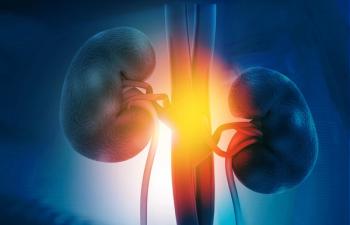
Amivantamab plus chemotherapy also improved time to symptomatic progression among patients enrolled on the MARIPOSA-2 trial.

Your AI-Trained Oncology Knowledge Connection!


Amivantamab plus chemotherapy also improved time to symptomatic progression among patients enrolled on the MARIPOSA-2 trial.

Data from the GALAXIES-Lung 201 trial found efficacy improvement in patients with advanced NSCLC.

Patients with radioiodine-refractory differentiated thyroid cancer appear to derive benefit from lenvatinib in community and academic settings.

Findings from DESTINY-Breast12 support the use of T-DXd for patients with HER2-positive metastatic breast cancer.

BMS-986012 in combination with nivolumab/chemotherapy showed numerical PFS improvements in those with and without brain metastases at baseline.

The phase 3 CAPItello-290 trial of capivasertib plus paclitaxel did not meet its primary end point of improved overall survival in the frontline setting of metastatic triple-negative breast cancer.

Final analysis data from LITESPARK-005 support belzutifan as a treatment for patients with previously treated advanced clear cell RCC.

The magnitude of benefit with durvalumab was particularly consistent within prophylactic cranial irradiation and radiation subgroups in the ADRIATIC trial.

Patients with NSCLC across various subgroups did not see a disease-free survival benefit with adjuvant durvalumab compared with placebo.

Genomic subtype was associated with relapse, occurring in nearly 50% of PAX5-altered pediatric acute lymphoblastic leukemia cases.

Patients with certain solid tumors may be eligible for subcutaneous atezolizumab and hyaluronidase-tqjs, which is now approved by the FDA.

Updated findings from the AEGEAN trial support perioperative durvalumab as a new therapy option for those with resectable non–small cell lung cancer.

Phase 2 data show meaningful efficacy with taletrectinib regardless of whether patients with ROS1-positive NSCLC previously received tyrosine kinase inhibitors.

Early data appear to highlight encouraging efficacy and tolerability outcomes with Bria-IMT in patients with metastatic breast cancer.

Developers anticipate releasing full efficacy results from the phase 2 THIO-101 trial in late 2024.

Confirmed partial responses with firmonertinib occurred across a range of EGFR PACC mutations among patients with NSCLC in the phase 1b FURTHER trial.

Patients with EGFR-mutated NSCLC had sustained HRQOL when treated with amivantamab plus lazertinib vs osimertinib.

HER2DX demonstrated the ability to select patients who are more likely to achieve disease control with anti-HER2 standard of care in the CLEOPATRA trial.

Support for the planned biologics license application comes from data showing a 32.9% response rate with RP1 plus nivolumab for melanoma.

Research shows that patients with pancreatic ductal adenocarcinoma are frequently understaged prior to surgery.

Treatment with valemetostat yields responses across all PTCL subtypes in the phase 2 VALENTINE-PTCL01 trial.

CancerNetwork co-hosts Kristie L. Kahl and Andrew Svonavec highlight abstracts to look out for surrounding the multidisciplinary approach at the upcoming ESMO Congress in Barcelona, with some additional tidbits to round out the main event.

Treatment with RLY-2608 plus fulvestrant appears well tolerated among patients with PI3Kα-mutated breast cancer in the ReDiscover trial.

Data from the HARMONi-2 trial support the potential superiority of frontline ivonescimab vs pembrolizumab in non–small cell lung cancer.

In particular, dato-DXd plus durvalumab and chemotherapy produced the highest pCR and mPR rates in the phase 2 NeoCOAST-2 trial.

Phase 1b data also show encouraging preliminary intracranial activity with zongertinib among patients with HER2-mutant non–small cell lung cancer.

BAY 2927088 showed substantial response rates for patients with pretreated HER2-mutant non–small cell lung cancer.

Amivantamab/lazertinib also reduces the risk of second progression or death compared with osimertinib in the phase 3 MARIPOSA trial.

The use of 5-fluorouracil decreased toxicity and possible savings in first-line advanced gastrointestinal cancers.

Jessica Cheng, MD, highlights how physical medicine and rehabilitation may help optimize function and performance status in patients with cancer.